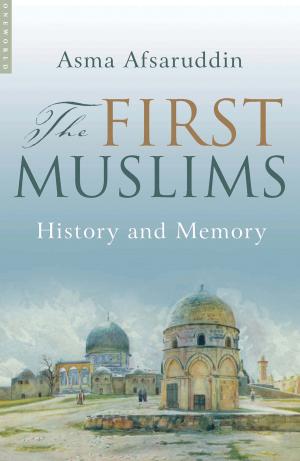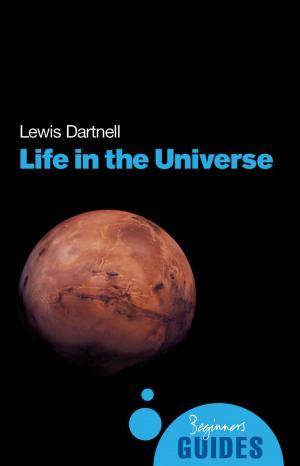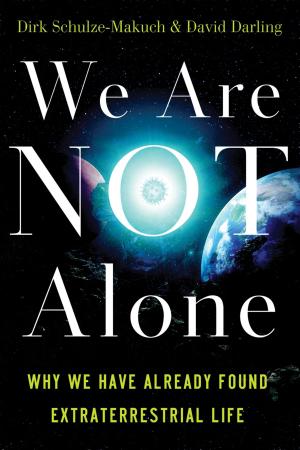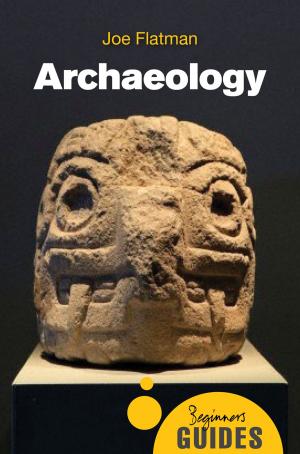Kierkegaard
An Essential Introduction
Nonfiction, Religion & Spirituality, Philosophy, Existentialism, Religious, Health & Well Being, Psychology| Author: | Michael Watts | ISBN: | 9781783015160 |
| Publisher: | Oneworld Publications | Publication: | September 2, 2014 |
| Imprint: | Oneworld Publications | Language: | English |
| Author: | Michael Watts |
| ISBN: | 9781783015160 |
| Publisher: | Oneworld Publications |
| Publication: | September 2, 2014 |
| Imprint: | Oneworld Publications |
| Language: | English |
'Best single source on Kierkegaard I've seen. Excellent short biography of his life and family. Fantastic explanation of how to approach Kierkegaard's ideas… I did spend a lot of time on the Danish philosopher's work as a graduate student (particularly Fear and Trembling) and I do wish that I had had this at the time' (Austin Cline, online review at atheism.about.com; full review at http://atheism.about.com/od/bookreviews/fr/Kierkegaard.htm)
'A reader's delight … his presentation of Kierkegaard's thought is crystalline, concise, and compelling… Michael Watts has succeeded in presenting the nuanced and multilayered thought of Kierkegaard in a very readable manner.' (review in 'Review of Metaphysics', Vol. 58 (3), March 2005. pp. 689. by Roy Martinez, professor and chair of the Department of Philosophy and Religion at Spelman College.
The book covers the following key themes:
1. Kierkegaard's life and Death
2. How to read Kierkegaard
3. Objective versus Subjective Truth and Faith
4. Key themes of Fear and Trembling
5. Anxiety and Selfhood
6. The three spheres of Human existence
7. Despair and the purpose of Existence
8. Death
Clarifies in crystal clear, jargon free, highly readable prose, Kierkegaard's use of pseudonym, irony, humour and parable, and all the core themes of Kierkegaard's writings that best exemplify the essence of his work: his thoughts on anxiety, despair, subjective truth and faith, and the purpose of life. Widely endorsed by eminent professors of philosophy, it is a perfect choice for students of Kierkegaard and for complete newcomers.
No other introduction provides such an in-depth analysis of Fear and Trembling, the central work of Kierkegaard's authorship, and such a comprehensive coverage of his understanding of death awareness, which he regarded as a prerequisite for true spiritual development. Embedded in the pages of this book are ideas that are as relevant today to the fundamental concerns of our modern existence, as they were during Kierkegaard's time - metaphors and truths of existence that when experienced subjectively, will overwhelm and enlighten receptive readers with insights that can lead to genuine inner transformation and profound personal growth.
'A reader's delight … his presentation of Kierkegaard's thought is crystalline, concise, and compelling… Michael Watts has succeeded in presenting the nuanced and multilayered thought of Kierkegaard in a very readable manner.' (review in 'Review of Metaphysics', Vol. 58 (3), March 2005. pp. 689. by Roy Martinez, professor and chair of the Department of Philosophy and Religion at Spelman College.
The book covers the following key themes:
1. Kierkegaard's life and Death
2. How to read Kierkegaard
3. Objective versus Subjective Truth and Faith
4. Key themes of Fear and Trembling
5. Anxiety and Selfhood
6. The three spheres of Human existence
7. Despair and the purpose of Existence
8. Death
Clarifies in crystal clear, jargon free, highly readable prose, Kierkegaard's use of pseudonym, irony, humour and parable, and all the core themes of Kierkegaard's writings that best exemplify the essence of his work: his thoughts on anxiety, despair, subjective truth and faith, and the purpose of life. Widely endorsed by eminent professors of philosophy, it is a perfect choice for students of Kierkegaard and for complete newcomers.
No other introduction provides such an in-depth analysis of Fear and Trembling, the central work of Kierkegaard's authorship, and such a comprehensive coverage of his understanding of death awareness, which he regarded as a prerequisite for true spiritual development. Embedded in the pages of this book are ideas that are as relevant today to the fundamental concerns of our modern existence, as they were during Kierkegaard's time - metaphors and truths of existence that when experienced subjectively, will overwhelm and enlighten receptive readers with insights that can lead to genuine inner transformation and profound personal growth.
'Best single source on Kierkegaard I've seen. Excellent short biography of his life and family. Fantastic explanation of how to approach Kierkegaard's ideas… I did spend a lot of time on the Danish philosopher's work as a graduate student (particularly Fear and Trembling) and I do wish that I had had this at the time' (Austin Cline, online review at atheism.about.com; full review at http://atheism.about.com/od/bookreviews/fr/Kierkegaard.htm)
'A reader's delight … his presentation of Kierkegaard's thought is crystalline, concise, and compelling… Michael Watts has succeeded in presenting the nuanced and multilayered thought of Kierkegaard in a very readable manner.' (review in 'Review of Metaphysics', Vol. 58 (3), March 2005. pp. 689. by Roy Martinez, professor and chair of the Department of Philosophy and Religion at Spelman College.
The book covers the following key themes:
1. Kierkegaard's life and Death
2. How to read Kierkegaard
3. Objective versus Subjective Truth and Faith
4. Key themes of Fear and Trembling
5. Anxiety and Selfhood
6. The three spheres of Human existence
7. Despair and the purpose of Existence
8. Death
Clarifies in crystal clear, jargon free, highly readable prose, Kierkegaard's use of pseudonym, irony, humour and parable, and all the core themes of Kierkegaard's writings that best exemplify the essence of his work: his thoughts on anxiety, despair, subjective truth and faith, and the purpose of life. Widely endorsed by eminent professors of philosophy, it is a perfect choice for students of Kierkegaard and for complete newcomers.
No other introduction provides such an in-depth analysis of Fear and Trembling, the central work of Kierkegaard's authorship, and such a comprehensive coverage of his understanding of death awareness, which he regarded as a prerequisite for true spiritual development. Embedded in the pages of this book are ideas that are as relevant today to the fundamental concerns of our modern existence, as they were during Kierkegaard's time - metaphors and truths of existence that when experienced subjectively, will overwhelm and enlighten receptive readers with insights that can lead to genuine inner transformation and profound personal growth.
'A reader's delight … his presentation of Kierkegaard's thought is crystalline, concise, and compelling… Michael Watts has succeeded in presenting the nuanced and multilayered thought of Kierkegaard in a very readable manner.' (review in 'Review of Metaphysics', Vol. 58 (3), March 2005. pp. 689. by Roy Martinez, professor and chair of the Department of Philosophy and Religion at Spelman College.
The book covers the following key themes:
1. Kierkegaard's life and Death
2. How to read Kierkegaard
3. Objective versus Subjective Truth and Faith
4. Key themes of Fear and Trembling
5. Anxiety and Selfhood
6. The three spheres of Human existence
7. Despair and the purpose of Existence
8. Death
Clarifies in crystal clear, jargon free, highly readable prose, Kierkegaard's use of pseudonym, irony, humour and parable, and all the core themes of Kierkegaard's writings that best exemplify the essence of his work: his thoughts on anxiety, despair, subjective truth and faith, and the purpose of life. Widely endorsed by eminent professors of philosophy, it is a perfect choice for students of Kierkegaard and for complete newcomers.
No other introduction provides such an in-depth analysis of Fear and Trembling, the central work of Kierkegaard's authorship, and such a comprehensive coverage of his understanding of death awareness, which he regarded as a prerequisite for true spiritual development. Embedded in the pages of this book are ideas that are as relevant today to the fundamental concerns of our modern existence, as they were during Kierkegaard's time - metaphors and truths of existence that when experienced subjectively, will overwhelm and enlighten receptive readers with insights that can lead to genuine inner transformation and profound personal growth.















